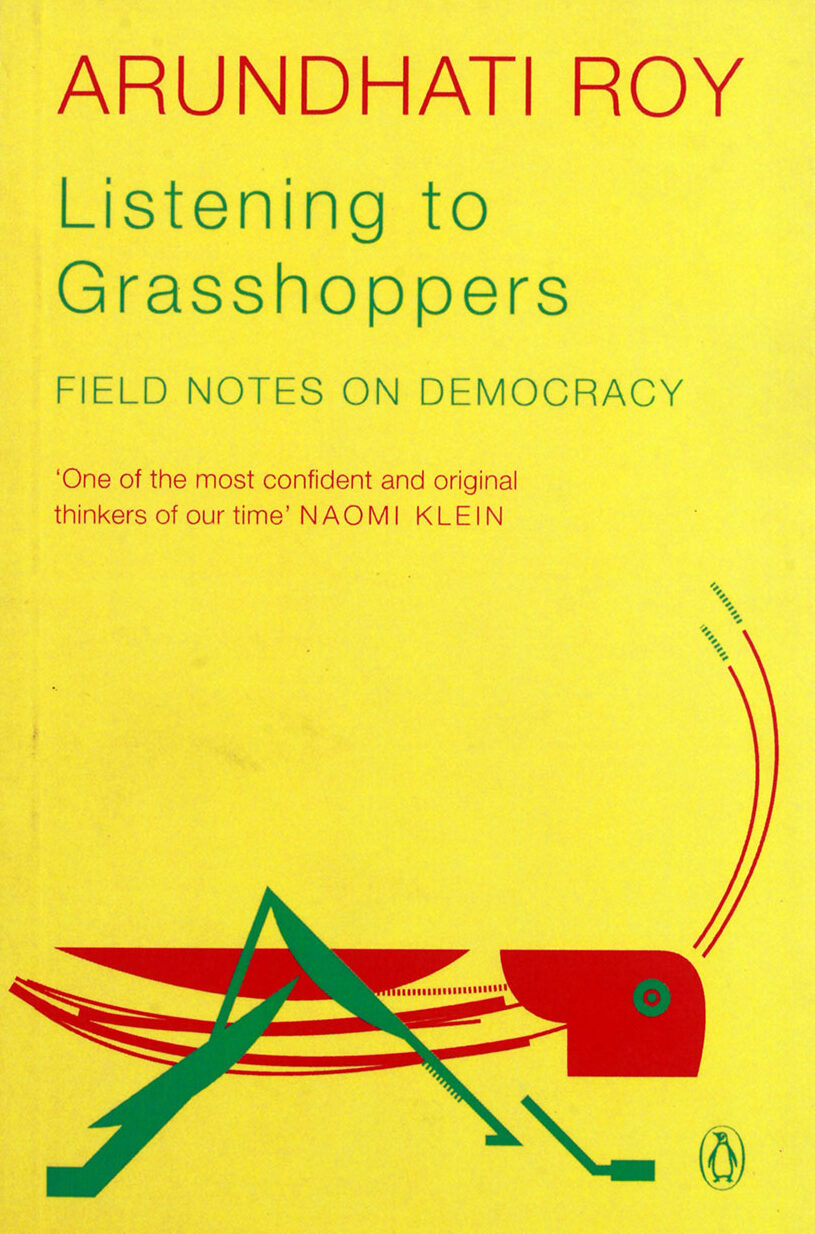Listening to Grasshoppers: Field Notes on Democracy | Arundhati Roy
₨ 400.00
Listening to Grasshoppers: Field Notes on Democracy (2009) is a collection of essays written by Booker Prize winner Arundhati Roy. Written between 2002 and 2008, the essays have been published in various left-leaning newspapers and magazines in India. The first edition of the book consists of eleven essays with an introduction by Roy was published by Hamish Hamilton in India.
1 in stock
CompareListening to Grasshoppers: Field Notes on Democracy (2009) is a collection of essays written by Booker Prize winner Arundhati Roy. Written between 2002 and 2008, the essays have been published in various left-leaning newspapers and magazines in India. The first edition of the book consists of eleven essays with an introduction by Roy was published by Hamish Hamilton in India.
The official introduction to the book in the publisher’s website is as below:
‘What happens once democracy has been used up? When it has been hollowed out and emptied of meaning?’
Combining brilliant political insight and razor-sharp prose, Listening to Grasshoppers is the essential new book from Arundhati Roy. In these essays, she takes a hard look at the underbelly of the world’s largest democracy, and shows how the journey that Hindu nationalism and neo-liberal economic reforms began together in the early 1990s is unraveling in dangerous ways.
Beginning with the state-backed killing of Muslims in Gujarat in 2002, she writes about how ‘progress’ and genocide have historically gone hand in hand; about the murky investigations into the 2001 attack on the Indian Parliament; about the dangers of an increasingly powerful and entirely unaccountable judiciary; and about the collusion between large corporations, the government and the mainstream media.
The collection ends with an account of the August 2008 uprising in Kashmir and an analysis of the November 2008 attacks on Mumbai. ‘The Briefing’, included as an appendix, is a fictional text that brings together many of the issues central to the collection.
Related products
Georgy Valentinovich Plekhanov, 1857–1918, a Russian revolutionary and founder of Marxism in Russia and known as the “Father of Russian Marxism.” His best works in the fields of history, philosophy, aesthetics, social and politics, especially the philosophy of historical materialism, were contributions that very valuable for the development of scientific thought and progressive culture.
Publisher: Aakar Books (1869)
with an Introduction,‘The Doctor and the Saint’ by Arundhati Roy
Annihilation of Caste ‘posseses a generic openness to the wounds and decisions of existence which can breach the prisons of the world as no amount of scholarship can’—Biblio
Read a comprehensive interview with Arundhati Roy in Outlook, where she says, ‘Caste is at the heart of the rot in our society. Quite apart from what it has done to the subordinated castes, it has corroded the moral core of the privileged castes. We need to take Ambedkar seriously.’
This Ideas Of Lenin And Trotsky Are Without Doubt The Most Distorted And Slandered In Histoy. For More Than Eighty Years, They Have Been Subjected To An Onslaught From The Apolgists Of Capitalism, Who Have Attempted To Present Their Ideas – Bolshevism – As Both Totalitarian An Utopian. An Entire Industry Was Developed In An Attempt To Equate The Crimes Of Stalinism With The Regime Of Workers’ Democracy That Existed Under Lenin And Trotsky.
Authors : Alan Woods, Ted Grant
Publisher : Aakar Publications
The Making of Babasaheb and the Dalit Movement






Reviews
There are no reviews yet.